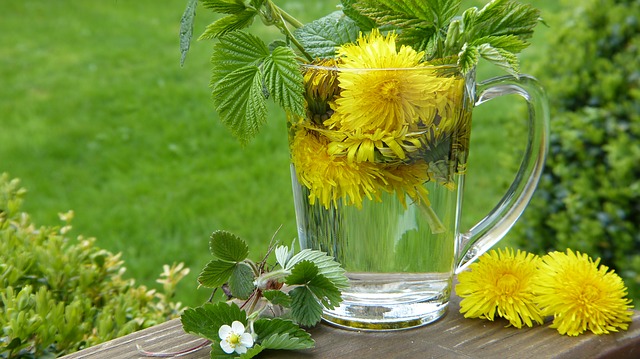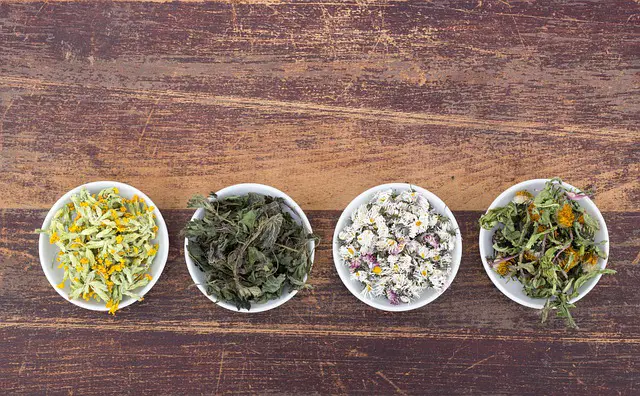The prolific dandelion may cause headaches when it takes over a yard, but in a different form, dandelions can be life-changing.
The dandelion has been revered for centuries because of its array of medical benefits, typically in tea form. But what is dandelion tea good for and where can you find it? Here’s a closer look at everything you need to know about dandelions and how they can impact your health.

Quick Navigation
What Are Dandelions
If you have a yard or even a small bit of green space, you likely have dandelions. Easily recognizable for its yellow flowers, the plant grows around the world and is particularly prodigious in North America.
Some call it a flower and others a plant or weed, but dandelions are actually designated as herbs by botanists. Most of the dandelion has been used in medicinal forms, including the flower, stem, leaves, and roots.
What Are The Health Benefits of Dandelions
Many potential health benefits of dandelions have been identified, since they are full of antioxidants, including beta-carotene and polyphenols that work to prevent aging and some diseases.
Such compounds in dandelions may also help the body fight general inflammation, and have the potential to reduce blood sugar, cholesterol, and blood pressure.
Dandelions are also highly nutritious and packed with vitamins, making them great additions to the foods we eat every day. They are also fantastic sources of magnesium, iron, calcium, and zinc.
Other health benefits of dandelions include easing digestive issues, preventing urinary tract infections, tackling liver disease, and even potentially fighting types of cancer.
What is Dandelion Tea Good For?
Tea is one of the most common way people ingest dandelions. Dandelion tea, called a tisane, is usually made from the root of the dandelion, but others brew the whole plant or the stem and leaves.
Ingesting dandelion tea has many of the above health benefits, but can also act as a good substitute for caffeine.

Dandelion tea has been shown to help with detoxification in the body, promote weight loss, protect the skin, and generally improve the immune system. The dandelion’s extensive vitamins and antioxidants can be easily consumed in tea form.
Potential Side Effects of Dandelion Tea
The benefits of dandelion tea often outweigh its potential side effects.
Dandelions should not be eaten or ingested in tea form by those who are allergic to the herb. Those with eczema may be more inclined to have an allergic reaction to the herb, and those allergic to other weeds, like ragweed, chamomile, and marigold, are more inclined to be allergic to the dandelion.
Others have noted such side effects as heartburn, upset stomach, irritated skin, and diarrhea.
Making & Buying Dandelion Tea
It’s easy to both make and purchase dandelion tea. If you want to make the tea yourself, one popular way is to take 2 cups of clean dandelions and cover them with 4 cups of water in a saucepan. Bring it to a boil, cover the pan and remove it from heat.
Let the tea infuse for three hours and up to overnight. Strain the dandelion out and dilute the tea with water to hit the right strength for you.
Dandelion tea is also available in many large retail shops, including Target and Whole Foods, but also on Amazon and in specialty tea stores and local health stores specializing in herbal medicines.

Scott is the founder of TeaMinded. He enjoys tasting and discovering teas from across the globe, with green teas and ceremonial matcha from Japan being among his favorites. He’s grateful to be immersed in the tea community, always learning and sharing along the journey.





